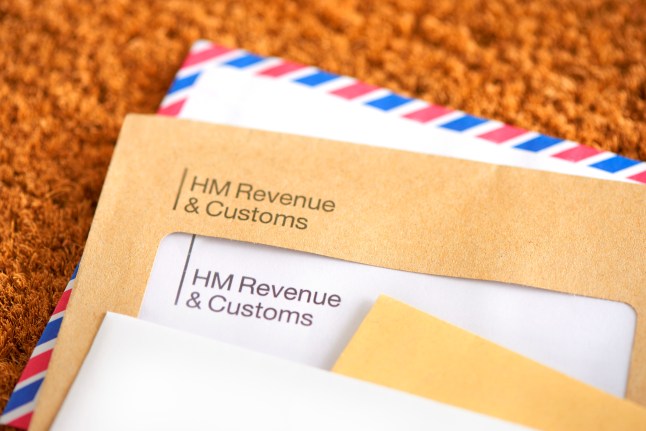
With a new financial year having started this week, a ‘significant’ number of UK savers could find themselves with an unexpected HMRC bill in a matter of days.
Although you don’t have to pay tax on money you’ve saved, you are taxed on interest earned over a certain amount — and following years of rising interest rates, these thresholds are easier than ever to hit.
What you can expect all depends on the type of account you have and your income tax band.
But anyone with a pot of £3,500 or more could soon receive a letter, so it’s worth checking now to avoid a nasty surprise.
How much tax do you pay on bank interest?
Basic rate taxpayers – earning £12,571 to £50,270 annually – are allowed to earn £1,000 a year in tax-free interest, with anything above this amount charged at 20%.
Meanwhile, the personal savings allowance (PSA) for those on the higher rate – with an income of £50,271 to £125,140 each year – is £500, beyond which a 40% tax is incurred.

Then there’s the different type of account: according to Money Saving Expert (MSE), those on the basic rate would need around £20,000 placed in a top easy-access savings account to exceed the allowance at current rates, with the figure for higher rate taxpayers sitting just over £10,000.
However, if you save through a fixed-rate account, which locks your cash away for a set time, the threshold will be far lower.
Because you’re taxed on savings interest in the tax year you can access it, if you opt for a fixed-rate savings account longer than a year where the interest is paid at maturity, all the interest is counted towards the final year’s PSA.
So, higher rate taxpayers with as little as £3,500 on a three-year fixed rate of 5% will go over their allowance, or roughly £7,000 for anyone on the basic rate.
Types of savings interest subject to tax
Your allowance applies to interest from:
- some life insurance contracts
- bank and building society accounts
- savings and credit union accounts
- unit trusts, investment trusts and open-ended investment companies
- peer-to-peer lending
- trust funds
- payment protection insurance (PPI)
- government or company bonds
- life annuity payments
Savings in tax-free accounts like Individual Savings Accounts (ISAs) and some National Savings and Investments accounts do not count towards your allowance.
Visit the UK Government website for more information.
At the start of the year, Paragon Bank revealed 2.4 million fixed term non-ISA savings accounts were set to mature in the next three months.
Of this figure, up to 887,000 had generated enough interest to incur a tax payment.
Derek Sprawling, the company’s managing director of Savings, said that ‘most maturing savers will, unfortunately, likely not be able to match their previous rate when it comes to an end,’ and urged people to use up ISA allowances (if they haven’t already) to maximise future returns.
When will I find out if I owe tax on my savings?
As the new fiscal year began on Sunday, April 6, HMRC will now begin assessing what’s owed for the 2024/25 tax period.
Banks notify the taxation service of the interest each customer receives, with Lloyds Bank explaining: ‘HMRC will, in turn, complete any necessary calculations and changes.’
If it finds you do owe tax, you’ll receive a P800 letter (or Simple Assessment depending on your circumstances) explaining how the money will be recouped; typically through a deduction in your personal allowance which will mean change in your tax code.
HMRC says these letters ‘can be sent at any time as information becomes available’, but if you want to work out whether you could be due a bill, estimates may be available through your Personal Tax Account on Gov.uk.
Alternatively, your bank or building society should provide annual statements detailing how much interest you earned, and some also include a breakdown of what’s taxable or not.
Do you have a story to share?
Do you have a story to share?
Get in touch by emailing MetroLifestyleTeam@Metro.co.uk.